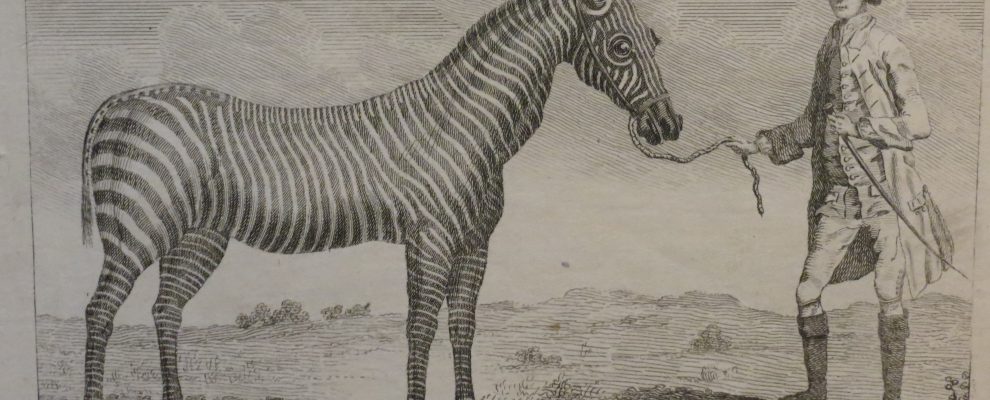The eighteenth century was a time of imperial expansion and global exploration, and this aspect of the age was reflected in the travelling menageries which brought exotic creatures from around the world to the towns and cities of Georgian Britain, including York. The business of operating menageries was highly commercial and competitive. Menagerie owners advertised extensively in advance of their arrival in particular towns and, in order to maximise interest and their profits, planned their shows to coincide with fairs and race days.
Travelling menageries also exhibited their curiosities in coffee houses, where smaller animals, as well as pieces of taxidermy, would be showcased for paying customers. The curious Georgian seeking out exotic animals for entertainment could also visit the warehouses and shops of animal merchants, such as Joshua Brookes, whose establishments in Gray’s Inn Road and Tottenham Court Road in London sold animals as varied as exotic birds, antelopes, lions, kangaroos, monkeys and porcupines.
Large cities such as London were able to offer a number of permanent spaces for the display of exotic animals, including the Tower Menagerie and Mr Pidcock’s Menagerie at Exeter Exchange. A visit to either establishment was considered an essential part of the London tourist experience. Visitors to the Tower Menagerie in 1741 could see ‘two lionesses, Jenny and Phillis, and the lion Marco (consort to Phillis); a leopard called Will and a panther called Jenny; two tigers (Will and Phillis); then a racoon, two vultures and two eagles’.
In 1725 a Swiss traveller, César de Saussure, even had a close encounter with some lion cubs, describing how he was able ‘to fondle and caress them as if they had been little dogs’. A visit to London might also involve a visit to Buckingham Gate to see Queen Charlotte’s two zebras. A visit to Buckingham Gate was supposed to be free, but guards often charged for the privilege of viewing ‘the Queen’s ass’. When the first zebra died she was stuffed and placed on display at the Blue Boar Inn on Castlegate, York – where, unfortunately for the Queen, the joke endured.

Source: In Pursuit of Pleasure: Entertaining Georgian Polite Society (Fairfax House, 2016)
